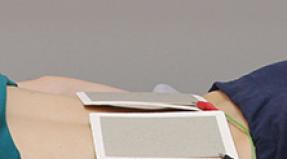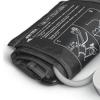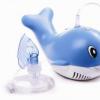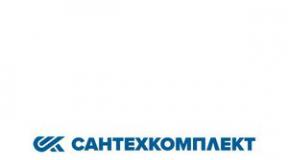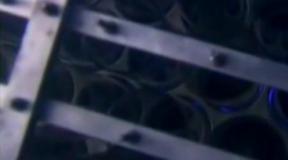Why schoolchildren change schools. “There is no need to issue certificates to everyone. Big frog effect
The Higher School of Economics has prepared a program to reeducate lagging schools. In the experimental mode, the technique is being run in remote microdistricts of Moscow - Nekrasovka, Kapotnya and Maryino. Last year, a university-school cluster appeared here, which included 33 educational complexes created from 220 former schools and kindergartens. Why do children need to be taught in a new way? Why should education be paid and not ubiquitous? These and other questions of "Lenta.ru" were answered by the ideologist of the project, deputy scientific director of the Higher School of Economics, Doctor of Economics Lev Lyubimov.
"Lenta.ru": When my daughter finished the first grade, I asked: will you miss the teacher? “No,” the child replied in horror. - She treats us like dogs: "Sit down! Stand up!"
Lyubimov: It was interesting to start. What you are talking about is called didactic teaching. It existed for a long time, from the end of the 19th century. And now most of the schools in Russia live the same way. This is a kind of oral translation from subject to object.
That is, the student as a person, as a subject is not considered?
Of course not. The West has long understood that oral retelling of a textbook is a source of danger. It is impossible to teach anything like that. Science is developing not in an evolutionary way, as before, but in an explosive way. The main body of professional specific knowledge becomes obsolete in 4-5 years. And therefore, the north of Europe, Canada, Australia, Singapore, South Korea have moved on to the fact that it is necessary to teach not so much and not only knowledge, but how to handle knowledge, apply it, search, select, extract and impart its own meanings. That is, to teach competence. China has already carried out this reform - it replaced the didactic paradigm with the activity one and became the world school leader. And we are already 50 years behind.
But after all, elementary school moved to new educational standards four years ago. Officials promised that cramming would leave schools, all attention - to practice, the development of competencies. Is not it so?
The average teacher does not know what and how to do with these standards. He only knows how to verbally retell the textbook and command. And she feels discomfort because she feels that children do not perceive this.
We believe that if a law, a standard is adopted, orders are issued, then everything will be done by itself. No, it won't! We need to teach the school what to do and how to do it according to the new paradigm. We need big investments in teachers, principals, if you want - in a parent too.
The curve of the development of a person's potential on the graph in the first ten years of his life goes exponentially. And then it slows down and almost evens out by the age of 30. The Russian school does not allow children to truly develop their potential. So we are churning out massive C grade students. And then a mass of non-competitive adults grows out of them. Today we have a minimum of world-class professionals in almost every field. But crowds of dependents and quasi-entrepreneurs, whose goal is to seize someone else's business, "squeeze" and export foreign currency.
And you want to change the system in your university cluster? Where did you start?
From teachers. The first thing I say to them when we meet: if you are still sure that you are the main source of knowledge for children, this is sad. If today a child is interested in this topic, and you will broadcast our skinny textbook in class, he will find interesting and necessary materials at home on the Internet, but at the same time he will lose interest in you. He will know more than you on this topic. The teacher today must become a subject matter expert. And most of them have a problem with that. If a person graduated from the physics department of a classical university, they will write in his diploma: physicist, physics teacher. And if he graduated from the pedagogical university, the diploma will say “physics teacher”. Do you understand the difference? In Finland, no one will be admitted to school without a master's degree from a classical university. Our task is to turn physics teachers into physicists.
This is not a short story. To begin with, in the cluster, university professors conduct an advanced training program with teachers. And they often stumble upon the fact that many do not understand them. After the seminars, the professors are given an assignment - to master a dozen professional books in a year. Then we'll check if everyone understands.

Will you arrange the exam?
Yes, you have to. The teacher is obliged to learn himself. Self-study throughout life is the most important commandment of the 21st century. The teacher must teach the child to learn independently. How can he do it without studying himself every day?
Are the teachers ready for this?
In any school, the entire teaching staff, according to my observations, is divided into three parts. The first is the knights of the school. The main thing for them is children, they have a professional conscience and honor. The second - those who are used to instructions, to orders. If they order, they will do it, if they do not order it, they will not do it. But in Moscow, they value their jobs and wages. That is, they are quite manageable and trainable. The third part is those who hold on to the job and the income that it brings. But they just don't want to change. We are trying to part with the third part in our cluster.
Many were kicked out?
The percentage of those who left is about 20.
How do parents view the change?
They are watching. But we are trying to actively involve them in the work. The role of parents today is one of the main failures of kindergarten and school. Most view educational institutions as a storage room. They taught them that their business is to give birth to a child, to feed and clothe, and the rest will be done for them.
In my opinion, now it is the parents who understand that education is capital.
Alas, for too many of them education is a crust, not a system of knowledge in the head. We start working in kindergarten. Now one of the problems a child has is speaking. 25 years ago vocabulary the first grader was 5-6 thousand words. Now it's good if 3 thousand. Why?
Probably, you can talk about the dominance of computers and televisions.
Yes. Visualization, lack of texts on the air. Oral speech is formed in a child from the ether, from what he hears. And he sees but does not hear. In twenty episodes of the magnificent cartoon "Just You Wait!" just two words. Tom and Jerry doesn't even have that. Therefore, we draw up a program of individual lessons with the parents. Kindergarten must provide them with a bank of names of text materials, audio books, text cartoons. And then sit down together and paint on a monthly basis when and what will be read, look around at home and in the garden. Another failure of the kindergarten is the socialization of children. Do you know what it is?
The ability to behave in society?
When I ask this question in schools and kindergartens, they answer about the same. In fact, socializations are different at different levels. In kindergarten, this is the formation of a rather long list of stable behavioral skills: be the first to greet an adult, give way to adults, and boys also give way to girls, take care of what they gave you and what others have. This, by the way, is where the sense of ownership begins.

I wrote such skills for a page and a half. Therefore, we must sit down with our parents and say: now we are working on this, tomorrow - another. In elementary school, we rethink the tasks of teaching reading and writing. To teach reading means to make a child dependent on books and texts for life. Not a day without a chapter! To teach writing means to form in the child a stable need for the presentation in writing of his thoughts, impressions, and experiences. Not a day without a line! By the end of the beginning, the child should have a collection of his own written texts. Dynamically developing oral speech, contagion with reading, writing are the basis of powerful intellectual development. And none of this today is found either in gardens or in schools. But then "on average" there will be 50 USE points!
Many see the main evil in the Unified State Examination. The main task of the teacher now is to train children for tests.
The exam is an unbearable torture for a teacher and director. They, but what are they - the entire population is not used to an independent assessment of their work. The culture of peer review is a very high culture. The planned economy killed her - whatever they slap, everything will be sold, everything will be distributed. The Unified State Exam is a small element of this high culture that needs to be revived. But it will work if the state exam is impartial. Last summer, only the lazy one did not say that at last we had the first honest exam. In fact this is not true. Take a look at the grading system. Initially, the minimum score that qualifies for a certificate in mathematics was set at 24 points. Then they looked at the results and reduced them to 21 points. Because otherwise, 20 percent of graduates would be left without a certificate. This year, will we reduce it by another 5 points, next - by ten? But the complexity of the current tasks for obtaining a three-year grade and a certificate is at the level of two classes of elementary school. “Petya spent 7 rubles on apples, and then another 13 rubles on sweets. How much money did Petya spend in total? " I believe that there is no need to issue certificates to everyone. I passed the exam below 40 points - and this is the level of knowledge for the 5th grade - here is a certificate for you that I used my constitutional right to an equal opportunity to receive a complete secondary education. But he didn't earn a certificate.
Your cluster includes 220 former schools and kindergartens. It turned out to be a kind of educational monster. Such complexes are the trend of today. Everything that is individual is killed. Is it possible to educate a competitive citizen in the crowd?
The first and foremost source of human movement forward is diversity. Therefore, the creation of complexes is the right step. Where else can you get a variety of teaching teams, educational environments, organizational cultures, leadership styles and concepts, infrastructures, information and library resources? On the basis of this, synergetics arises, which forms the environment for the upbringing of new people. Synergetics is self-organizing development. And it is the very third part of the teachers I spoke about that complains about reforms, and even incites parents to reformers. They are the ones who write denunciations to Putin, Medvedev, the Pope. They have a lot to lose. The average salary of a teacher in Moscow is now 70 thousand. The director has three times more. Per last years in Moscow, during the organization of the complexes, more than 80 percent of the director corps was replaced. The old leaders were notable for their inertia, they could not withstand modern requirements. They no longer tried to break the finish line. But the new ones are not all good either. Many will have to be replaced again in two or three years.
Is frequent change of leadership a blessing? Parents complain that today young, unknown young people are taking the place of experienced personnel. It is suspected that someone's relatives.
A competitive multi-stage selection system open to observation has been created in Moscow, which has already begun to spread throughout the country. Relatives, if they have nothing in their heads, simply will not pass. All directors are certified. Reminiscent of a driving license exam. Within 3-4 hours the candidate answers computer questions. In tests - five blocks of 100 questions. Those who passed the certification are discussed and can be approved at the district council of education management, and then at the city council. Yesterday, for example, we listened to a 55-year-old very cheerful retired colonel with a higher education, who was running for the post of director. He was blocked by zeros. And earlier it would have passed. At the final stage, the school's governing board is offered a choice of three principal candidates. And the parents choose.

Photo: Dmitry Lebedev / Kommersant
In most schools, the governing body is absolutely pocketbook. And it is not the board that controls the director, but exactly the opposite.
You can't make fun of everything. It all started somewhere. The process has begun, it has been launched.
How do you feel about the fact that there are more and more paid services in schools? Education is commercializing and becoming less accessible.
Correctly. It should be so. A hundred years ago, a small percentage of the population received general education. It was difficult and not accessible to everyone. To learn Vasily Vasilyevich Rozanov so that he would teach literature at the gymnasium was expensive. When the school became mass, the cost of it simply increased by an order of magnitude. And she began to put pressure on budgets. The growth rate of costs outstripped the growth rate of national income. This meant that quality suffered.
That is, in your opinion, quality education should become the privilege of the rich?
Now it is fashionable to complain that our people live poorly. When I hear this, I immediately ask: "Show who exactly is in poverty." Take our cluster. For example, a school in the very "aristocratic" district of Kapotnya, where, as I was told, the working class lives. Gathering parents of tenth graders. All the free space around the school is lined with foreign cars. Tens and tens of pieces. Is it a working class or who? And you say there is no money. The parent will invest in their adult amenities and pleasures. And in the child, as he believes, let the state invest. Strange logic - like a stepmother with a stepfather. You spend on your child first, and then go to the boutique for a shirt for ten thousand.
From the perspective of a Muscovite, you assess well-being. They will immediately object to you: look what is happening in the provinces. How can Lomonosov make his way there?
In some places, there is already no one to break through. I have a hut in a Novgorod village. Plot and two greenhouses. Every year I planted 6-7 beds of root crops and greens, weaving potatoes, in the greenhouse - peppers, cucumbers, tomatoes. To the left and right of my house are weeds. Neighbors receive 8 thousand pensions. They are too lazy to dig up even one hundred square meters for themselves. Young guys live in the same village who will not work under any circumstances. The question is, how do they live? They take 4 thousand of grandma's pension. And when she dies, they will go to steal. They are already a definite culture, the failure of the 90s.
Probably, this culture just developed due to the inaccessibility of normal school education in the village?
Basically, these are our historical sins, the Soviet legacy. The Bolsheviks destroyed many millions of the best competitive people. And our school over the past twenty years has brilliantly brought up a whole generation of unpatriots - C grade students. Those who will look for where it is easier and cheaper to get a university diploma, and then hang out in an Oblomov dressing gown in some office or trade plankton. They just do not overdo it, just not overwork.
This can only be broken if we begin to form competitive young cohorts through a new school. This can definitely be done in 15-20 years. I probably won't live to see this. But at least in some places I will sow grain. This is not a utopia. In a cluster, this is a practical and thoughtful goal. Already realizable, albeit with great difficulty.
We wanted the best, but it turned out as always. These words perfectly describe what is happening today in russian education... Serious problems exist literally at every stage: in kindergartens, general education, correctional and music schools, institutes, universities and academies. At the same time, everyone is dissatisfied with the reform of the educational sphere: children and their parents, school teachers, university teachers with academicians and employers of young specialists. To understand this problem, "Reedus" begins a series of articles devoted to the educational sphere. Today we will talk about schools.
Learn, learn and learn
Modern students follow this Leninist behest much more than their parents did during their school years. The educational load on children today is greater than ever. In early May, a story about asking too much at home thundered throughout the country. A criminal case was opened against her, but later the prosecutor's office of the Chelyabinsk region declared the decision illegal and canceled the decision.
So far, this is the only such media scandal, but today's schoolchildren are forced to gnaw the granite of science like the damned. "School, tutors, homework, sleep. So - seven days a week. There is no time left for anything else, ”says one of the graduates. Perhaps his words should be taken critically: most adolescents do not have a great love of learning, but this point of view is shared by many teachers. “Huge load. It needs to be drastically reduced. Children are essentially busy 7 days a week, given that many schools practice six days. In this case, they study from Monday to Saturday, and Sunday is almost completely occupied with preparing for Monday. No, there are, of course, those who study and manage to do sports, but there are an absolute minority of those, ”says Natalya Koneva, who has worked as a school English teacher for five years.
According to the standards, students from grades 7 to 11 are not allowed to put more than 7 lessons per day. With a five-day education system in grades 10-11, the number of teaching hours is limited to 34 per week, with a six-day system - 37. This is already a lot, taking into account the homework, but in fact these requirements are often not met: sometimes there are 8 lessons a day, and 41 lessons per week.
Screenshot of an electronic diary from one of the educational forums, where an eleventh grader proves his workload is above normal
Most likely, no one would have talked about the increased workload on schoolchildren if there was a sense of this. However, the results of the "educational diet with a high content of granite of science" are not encouraging. Two years ago, after passing the USE in the Russian language, a serious scandal erupted: many schoolchildren were unable to overcome the minimum passing score.
“The results of the unified state exam in the Russian language this year are monstrous. The Ministry of Education was even forced to lower the bar of the result from 36 to 24 points, in fact, legitimizing the fact that a two is a passing grade. Otherwise, a third of the country's graduates would not have received their certificates. At the same time, as we know how, it was served victoriously - they say, they learned to control so well that no one cheats anymore. But you have to see the result behind this, ”said Vladimir Tolstoy, adviser to the President of the Russian Federation in June 2014.
The result is disastrous. Most likely, there will be no failure in the USE results this year, also due to the "legalized deuces". However, schools do not fulfill their main task: they teach how to effectively place "jackdaws", but do not give knowledge. To give them to their children, parents are forced to seriously spend money on all kinds of tutors - and if a decade and a half ago this item of expenditure accounted for graduation classes, today many send their offspring for paid knowledge starting from grades 6-7.

"With this education reform, I will always have a job."
Natalia Koneva, English tutor, is sure of this. Tired of working at school, meaningless, in her own words, and merciless, she went into private business. “If the USE in English is made compulsory by 18-19, then there will be work - from morning to night. Our entire system is built in such a way that parents from the fifth grade must give their children to tutors, the older - the more tutors. Already at the age of 12, children must decide what they will do for the rest of their lives, ”she adds.
The increased load falls not only on schoolchildren, but also on teachers. “To get a good salary, you have to live at school from morning to night. If a student does not go to school because he lives in a dysfunctional family, or does not study well, then this is the teacher's problem, ”says Natalya Koneva. But the point is not only in the direct teaching and educational load. Education reform has added "paperwork" to teachers.
“I was told - by the way, I did not know - that out of 100% of reports written by teachers and school workers, only 30% are ordered by the Ministry of Education, and 70% are generally outside organizations. This, of course, is a disgrace. It is necessary to prepare a real legislative limitation to these reports. The teacher must do his own thing, and if he writes reports, then, accordingly, this time is stolen from our children, "- Prime Minister Dmitry Medvedev.
It should be noted that in that part of the work with documents, which is done at the behest of the Ministry of Education, not everything is smooth. “Our work is constantly duplicated,” says Natalya Koneva. "A paper journal is an electronic journal, a paper diary is an electronic diary, and so on."

“When I came to school, we had just introduced an electronic magazine, the first year. Nobody knew what to do with him. Arranged courses. Several times a computer science teacher came and told me how to fill it in. And then it turns out that the log can "crash", the databases - completely disappear, if you suddenly forgot to make a "backup". Grades disappear, here some extra field comes out, because programmers modify the magazine in the course of your work. Give you the alpha version and enjoy. Only we all got used to it, the next year they took us and by order from above they said that everyone will now fill out this e-zine: another site, another program, another interface, other features. They used it for two years. Then - a new version ... And you also need to keep a portfolio of children. And when to do the lessons themselves? Prepare for them? When to take care of children? "- asks rhetorical questions Sergey, a former teacher of geography and french.
“Today it is customary to scold teachers for everything: they teach poorly, not like they used to. But today's teachers are the same people who worked in schools twenty years ago, he continues. "The problems are not in the teachers, the problems are in the system itself, in the approach to school education."
“There are a lot of complaints,” says Natalya Koneva. - For example, to textbooks. In my subject, they are simply unacceptable. The first three years of study - the second, third, fourth grades - children learn a lot: absolutely unnecessary vocabulary, unnecessary grammar. Unnecessary because it is not practiced. Some kind of utopian textbook: it can be taught only if there is one hundred percent attendance, and in the classroom there are only geniuses who grasp everything on the fly. Failure begins in the fifth grade: they begin to re-learn the alphabet. Such relaxation lasts two years: grades 5-6. And then the "bulk" begins again, the increase in the volume of material. By the 11th grade, they should know a lot, but in fact they know little. No matter how hard you try, it won't work. There are wonderful textbooks, but you can't use them, because you can only use those that have the stamp of the Ministry of Education. This is a very limited number of textbooks. "
Similar claims are made against teaching aids in a variety of subjects. For example, the chairman of the Association of History and Social Science Teachers, Academician of the Russian Academy of Sciences Alexander Chubaryan, at the All-Russian Congress of History Teachers, noted “problems with social studies”: “I recently looked out for textbooks on social studies. They are very abstract and difficult even for a history department student, let alone a school student. "

“The leapfrog with textbooks and the difficulties associated with it in the form of difference in programs have been going on since about 2003. Now one thing, now another. The main thing is stability, but it is not in schools, we constantly have something new, - says Sergey. "The requirements for the exam change every year, and not only the requirements for the exam, but also for its content, change."
So it happened in the current year 2016: the exam in mathematics was divided into two levels - basic and profile. The results of the basic exam were announced today, the profile one - will become public in a week. There are no official results yet. The regions are so far only proud of the number of students who have completed a hundred Unified State Exam in Russian and Mathematics. Probably, this year the case will do without major scandals, as in 2014.
The main task of the educational department is to provide the maximum number of schoolchildren with certificates of secondary education, and representatives of the Ministry of Education carefully monitor this, first of all. The consequences of this approach and education reform are already visible today: the first representatives of the USE generation graduated from universities and went to work.
“Two new teachers came to my school. They entered pedagogical universities with an average grade of the certificate of "3". How will they teach history to children? As a head teacher, I see that for now they are an empty place, ”one of the head teachers said at the All-Russian Congress of History Teachers. Dmitry Livanov, meanwhile, is focused on a single history textbook (which in fact turned out to be three) and a massive one. “This cockroach needs to be launched into mass production, since this technological novelty will not only be interesting, but also useful for children and adolescents,” he said in February. Education has not yet reached the point of fighting cockroaches in the heads of individual officials.
Our next materials will focus on the consequences of school unification and inclusive education, kindergartens and music schools, the problems of Russian universities and fundamental science, corruption in the educational sphere, the questionable dissertation of Isaac Kalina and other interesting things from the world of science.
Lyudmila Sitnova, a leading psychologist at the School of Cooperation, a full member of the Professional Psychotherapeutic League, a fairy tale therapist.
School life is perhaps one of the most important pages in a person's life. At school, he learns not only to study, but also to communicate, work in a team, make friends, quarrel and make peace. The young man gets to know himself and life.
Someone recalls their school life with pleasure, and someone sighs with relief that the worst is behind ...
If a child feels bad at school, if the level of teaching is low, if there are no prospects, then the school should definitely be changed!
7 reasons to change school
1. If your child is in elementary school.
The main thing in elementary school is the teacher. Psychologists unanimously say, choose your teacher! It depends on how other children will treat your child.
For instance. The first grader Vanya was disliked by the class teacher. Yes, Ivan is not an ideal schoolboy, and now Iraida Vasilievna makes him a “scapegoat”. Vanya developed tics, increased stuttering. Clarification of the relationship did not give any result. In this case, of course, transfer to another school.
2. Your child goes to a regular school.
And the school seems to be good, and there are no problems with the teacher, but the trouble is, your child is a fidget, does not sit still, distracts other children, and there are 30 of them in the class! How to be? Of course, transfer to a school where in a class of 10-12 children and the teacher and educator can pay enough attention to him.
3. And now your child is already in high school.
He has many interests, he would like to play football, go swimming, paint, participate in performances, but at school there is none of this. And there is no one to take the child to circles and sections. What to do? Transfer to a school where all this is, where the child is busy with interesting things all day and does not even want to go home!
4. And if the school is weak? Is your knowledge low?
The child is not interested, he can do much more. I am ready to study two foreign languages, study mathematics, physics or history in depth. Of course, look for a school that will create all the conditions for your child's development.
5. Does your child not want to go to school? He doesn't like the way they teach, he is not bored, not interested ...
How interesting? It is interesting when he participates in various projects, olympiads, competitions from sports to intellectual. When he, together with the class, can go on an educational excursion not one, but several times a year. And there are such schools!
6. A few words about emotional intelligence.
Of course, every parent wants to see their child successful, happy and fulfilled. And here, perhaps, one of the most important roles is played by the ability to communicate, establish business and friendships, and be able to teach oneself and one's capabilities. Emotional intelligence is responsible for all this, about which so much has been written lately. And if at school your child performs on stage from the first grade, if he is involved in a lot of various projects, if he prepares presentations and reports, if he studies at the “Erudite” club from the Higher School of Economics, then, believe me, he will learn everything!
7. And now high school ...
High school is aimed at choosing a profession and institute, preparing for admission and successful study at the chosen university. It's great when a school provides high-quality training to prestigious universities in Russia and abroad. And if your child studies in a good school, among successful people, this is his future business connections, career, business, success!
School of Cooperation is
- Winner of the competition "School of the Year"
- More than 500 victories in international and all-Russian Olympiads
- More than 700 international certificates in foreign languages
- Basic school State University - Higher School of Economics, system of specialized training
- Kindergarten and Early Childhood Development Center
- Additional education system, own fitness center
95 teachers, including holders of the Grant of the President of the Russian Federation, winners and finalists of the contests "Teacher of the Year" and "Leader in Education", winner of the titles "Excellent Worker of the Year" and "Honorary Worker of Education of the Russian Federation"
- UNESCO Associated School
Moscow. Tagansky district, st. A. Solzhenitsyn, 9A
What, how and in what volume to teach children is dictated by the Federal State Educational Standard (FSES). Most of the programs developed on its basis boil down to the fact that children study at once the humanities, and the exact, and natural sciences. Both parents and children are unhappy with this approach.
Each subject student considers his subject to be the most important and sets such a volume of homework that the child says: "I have no time to live." This does not take into account the interests and inclinations of the child. Often, no one needs all these drawings, crafts, herbariums, but children are blackmailed by their assessments.
Irina Porokhova, mother of the seventh grader

In my opinion, it would be better if, after the seventh-eighth grade, the students were divided into groups: Physics and Mathematics, Humanities, Chem-Bio, Jurisprudence, and so on. It is extremely difficult to cover all the material in all subjects, and this way you can succeed in what you have a predisposition to. And the country will subsequently receive many high-quality workers, which it needs. This approach already exists in some schools, but not in mine.
Artyom Mokrushin, 10th grade student
2. Race for performance
Ratings in the education system are becoming more and more popular. They are compiled both at the municipal and regional levels and throughout the country. School rating often becomes a decisive factor for parents when choosing an educational institution.
There are no uniform criteria for assessing the quality of a school. But they usually look at the results of students on the OGE and the Unified State Examination (the main and unified state exams), whether children participate in Olympiads and sports competitions, and so on.
There is nothing wrong with competition. But in the pursuit of rating, school administration often forgets about its main mission - to teach.

I don't like the fact that no one at school is interested in your opinion. Essays are written according to a generally accepted template. If you disagree, your grade will be lowered. Therefore, children do not ask unnecessary questions (why, if they still do not answer?) And do not argue. At least in essence. If only to show off.
Georgy Porokhov, 7th grade student
3. Certification system
The Unified State Exam in Russia will soon celebrate its tenth anniversary. But the system has not yet been worked out. And it's not even about the leaks of assignments on the Internet and not about sudden excellent students. The format of the Unified State Exam runs counter to current educational activities.
The Ministry of Education and Science of Russia declares that "in order to obtain high marks on the Unified State Exam, it is necessary to demonstrate a high level of mastering the school curriculum." The problem is that in the process of coaching on the Unified State Exam, children do not have time for this development.

From the seventh grade, the USE began to scare us. Even to pass the base, you need to study more than they give in the lessons. Shouldn't the state examination test what was taught in school? High school students study the subjects that they will take, including with tutors, and the rest - just to somehow get an assessment.
Daria Tsykina, 10th grade student
The Ministry of Education and Science likes to emphasize that the CMM Unified State Exam (control and measuring materials, simply tasks) are not tests in their pure form. After all, there is part C. The tasks of an open type, where a detailed answer is required, according to the plan of the Federal State Educational Standards, are aimed at identifying the creative potential of children. But practice shows that this is not enough. Already now the admission to the final essay is. In the future - the introduction of preliminary written work in all subjects.
4. Paperwork and constant checks
Within the framework of the national project "Education" in Russia, the services of electronic journals and diaries have been introduced for more than 10 years. The law does not prohibit the abandonment of paper documents, but most educational institutions continue to conduct double-entry bookkeeping. Because numerous commissions may require them.
I am annoyed by ezines and diaries. I can't see the grade until I get home and surf the internet. Our school does not announce the grade after the student's answer. And these electronic assessments do not allow to correct later.
Daria Tsykina, 10th grade student
Programs, thematic and lesson plans, schedules, reports - this is only part of the paperwork that falls on the shoulders of an ordinary subject teacher. Class teachers and head teachers have even more red tape.

I would like to teach children, but in fact I constantly have to fill out some papers, reports. If you don't pass it on time, the bonus is a minus, although these papers do not affect the quality of my children's education.
Natalia Chipysheva, primary school teacher
In addition to government supervision, parental control has interfered with teachers' work in recent years. "Proactive" mothers and fathers drive teachers into the grip of statutes and protocols.

I like my job. I cannot complain about the "modern youth": there are, of course, individual offspring, but in general the team is manageable. It is stressful that you have to work directly with your parents and prove that you are not a camel. Now it is customary to interfere in the educational process and even sit in the classroom. The administration tries not to allow this on a large scale, but it cannot refuse. Therefore, we learn to respond in kind to phrases and articles of laws. Young teachers (22–45 years old) have already adapted, it is more difficult for the older generation.
Irina Perekrasnova, geography teacher
5. Salaries of teachers
According to Rosstat, the average salary of a teacher in Russia is about 33,000 rubles. But the real amounts are much less.
Teacher salaries vary from region to region and consist of a base portion and incentive payments. Increasing factors include a category, an honorary title or academic degree, work experience, classroom management, extracurricular work, and so on. They also pay extra for teaching in a village or, for example, a boarding school for orphans.
 hodor.lol
hodor.lol It is almost impossible for a young specialist without a category and experience to survive on a school salary. You have to earn extra money by tutoring or take on an enormous load.
To get a decent salary, teachers do everything they can. They don't have enough time to prepare for their lessons. As a result, children are bored, distracted, play on the phone, talk, and the lesson material turns into bloated homework.
It's not just a matter of the prestige and respect of society. The elevation of the teaching profession to the category of highly paid ones will lead to the fact that pedagogical universities will be filled with the best representatives of young people, and not with those who have not been taken anywhere else.
6. Out-of-class
Officially, the school now does not perform an educational function - only an educational one. Therefore, many educational institutions do not even try to organize children's leisure time.

At our school, I don't like the organization of school events. In addition to studying, children should spend time with classmates and teachers, do some projects, contests. We don't have that. Isn't it insanity - not to let the students attend the ceremonial part of the presentation of certificates or the anniversary of the school and sit in a hall full of teachers? Or, for example, a complete ban on school discos ...
Marina Oganezova, 10th grade student
Other educational institutions try to involve students in extracurricular life, but without a systematic approach, it also turns out badly. Both teachers and children are dissatisfied.
In general, I like the federal state educational standards. I think they are actually more appropriate modern lifethan the traditional teaching system. I do not like the obligatory extracurricular activities, because of it, some children do not have enough time for anything at all.
Natalia Chipysheva, primary school teacher
I am killed by voluntary-compulsory attendance of additional classes, circles, class hours. I have my own sections, I don't need these tea parties and concerts!
Georgy Porokhov, 7th grade student
What shortcomings of the school system do you see? What does not suit you as a parent, student, or perhaps a teacher? Provide constructive criticism in the comments.
Section 1 Starting over
1. Fill your portfolio with your expectations and worries. Walk through the class and read what the others have put in their portfolios. What did they write down? Example: I am expecting to learn many new English words. I am worried about writing tests.2. Read the reasons why students go to school. Now label them in order of importance to yourself.
To get basic knowledge
To prepare for future work
To meet other young people
To train your memory
To learn what you will never use
To find out what is really interesting for you
To please your parents
To test your intelligence
To learn how to study
To have some fun
To learn discipline
3. Work in groups of four. Compare your ratings and tell me what are the most / least important reasons in your group. Use the "How to contribute to a group discussion of ideas" in "Learning strategies" (page 169)
4. Work in pairs. Discuss these issues.
1. Why do schoolchildren in our country change schools?
2. Have you ever changed school? If so, when and why?
3. How did you feel when you moved from elementary to high school?
4. How do you feel now after you transferred to another school?
5. Read the excerpts from Wendy's diary. Are the following statements true?
Day 1
I just moved from private high school to public high school. I quickly went from being the oldest, most experienced student in the school to being the youngest, newest. Many things are confusing for me, including the schedule. I got lost today trying to find an art class. Where is my math class? A few miles from here ...
Day 2
So, it would be great to ditch that ugly uniform and put on jeans for a change, but there is something worse than that. It was difficult to find friends quickly. Most of all I miss my friends - we were all so close. We've been together for 9 years!
Day 3
I really miss my school. Even the food was better there. We had more variety and had delicious pizza every Friday !!! There were much fewer people in that school and not so many problematic people. I feel terribly lonely here. Nobody pays attention to me. I am very sorry to be here!
Day 4
The day was full of surprises. My subject of choice is team sports. I chose it because I expected a lot of girls there. It turned out I was EXTREMELY wrong. There were only five girls and about 30 boys! But it turned out to be good. I became a friend to many of the boys in my group.
Two months later
I almost finished my public school semester. It is still very difficult. This is my first time getting a 3 on my report card. But I like it here a lot more than at the private school. Public school doesn’t mean it’s easier. Homework is a little easier, but test papers definitely more difficult.
1 Wendy thinks not much has changed in her life.
2 She feels that it is difficult to find herself in a new place.
3 She must wear a school uniform at the new school.
4 She feels good not knowing her new classmates.
5 She spent nine years at her previous school.
6 There are even more children in her new school.
7 Discipline is better in a new school.
8 She didn't expect to make friends in team sports.
9 She is used to getting better results in her previous school.
10 She's getting used to her new school.
6 Work in pairs. Read the vocabulary definitions of words and phrases from the text and do the following assignments:
a) Translate words and phrases into Russian. Is it easy to do it? Why or why not?
b) Decide where Wendy is from; from UK or USA? how old is she? Explain why.
Middle school - 1 school in the UK for children ages 8 to 12 after they leave primary school... 2 school in the USA for children aged 11 to 14 after they leave primary school.
Public school - (public school) 1 in the UK is an expensive private school where students usually live and study. 2 In the United States, a school that is controlled and paid for by government taxes.
Elective subject - the course of study that you have chosen instead of the one in which you were supposed to study.
Semester (semester) - one of two periods of about 18 weeks, for which academic year is divided in some countries, for example the USA.
Report card- a document written by a teacher containing information about a student's progress in school.
A, B, C - grades, data for evaluating the student's work, its quality: excellent (A), good (B), or average (C).
Private school - A school that provides education for which the parents of the children pay directly.
High school - 1 school in the UK for children aged 11 and 18.
2 in the United States, a school for children aged 14 to 18.
7 Complete the verbal web using the words from task # 6 and text # 5. Use a workbook.
8 Work in pairs. Use words from the verbal web to compare Wendy's school to yours. Make 2-3 sentences.
Example: At Wendy's school, they weren't required to wear uniforms, but we must.
9 Work in pairs. Tell each other about the best / worst thing that happened to you on your first day of school this year.
10 Listen to three teenagers share their experiences on their first day of school, and decide which speaker:
1 didn't know anyone at school
2 mentioned some strict school rules
3 was nervous on the first day of school
4 liked the meals at the new school
5 didn't like the school uniform
Audio recording text:
Interlocutor 1
My new class is good because most of the same people are there as last year. On the first day, we got the timetable and then went to classes such as English, Math and Technology. I made some new friends and I like it when there are a lot of different people to talk to. I also have to wear a uniform now. If I'm not wearing it, I need to get a note from my parents or they'll send me home to change. The best thing that happened on the first day was that I made some new friends, and the worst thing was that I went for some subjects that were new to me. This made me nervous.
Interlocutor 2
I like the new teacher because he doesn't give a lot of homework. I was nervous going to first grade because I didn't know what lessons to expect. I went to school with one of my old friends, but made some new ones that I love very much. My best memory of the first day is from a physical education lesson, because we didn’t work much. The worst thing is that I had to wear a shirt and tie because it made me feel like I was sweating. My school uniform is black and it gets hot sometimes.
Interlocutor 3
I think the uniform is acceptable, but I hate gym wear because of the big long socks to be worn knee-high with shorts and the ugly yellow jersey. I was really nervous the first day because I hadn't been to this school before and never met anyone who goes there. I really think that the lunches at my new school are better than at the old one. I have more choice and I think it tastes better here. The best highlight of the first day was the French lesson. Before that, I never had it and I really liked it. The worst thing was that I was nervous most of the day and didn't know what to say or do. But I felt better when the day went by.
11 Listen again and write down the chart. Use a workbook.
12 Work in pairs. Complete sentences about yourself and share your ideas with your partner.
13 Use the words below to complete sentences about Wendy. Use the rules in the "Grammar reference" if necessary.
14 Do the tasks below:
a) Ask your classmates and find out who:
1 Has its own bag the longest.
2 Changed school most often.
3 Once I was learning another language.
4 Found new friends this year.
5 I recently read good books.
Example: How long have you had this bag?
b) Tell us what you learned about your classmates.
15 Read the rules, listen to the sentences and mark the strong and weak haves. Then practice saying the following sentences.
Have strong if it stands alone without the main verb. He's weak in the matter.
Have is often abbreviated ("Ve) in the text if it is followed by the main verb.
1 Have you just finished your job?
2 They haven't lived here for years.
3 She worked at a bank for five years.
4 Would you like to eat something? - I just ate.
5 I've worked hard this week.
6 It rained a lot this year.
7 We didn't see her today.
8 They saw this movie six times.
9 This has happened several times already.
10 Do you have a spare pen? - I don't think there is.
11 We have eaten at this restaurant many times.
12 Did he just leave?
13 Someone Ate My Soup!
14 She studied Japanese, Russian and English.
Audio recording text:
Have you just finished your job?
They haven't lived here for years.
She worked at a bank for five years.
Would you like to eat something? I just ate.
Have you played the piano since childhood?
I've worked hard this week.
It rained a lot this year.
We haven't seen her today.
They have seen this movie six times.
This has already happened several times.
Do you have an extra pen? - I don't think I have.
We have eaten at this restaurant many times.
Did he just leave?
Someone ate my soup!
She studied Japanese, Russian and English.
English originals of texts translated above:
Speaker 1
My new class is ail right because it still has most of the same people as last year. On my first day we got the timetable and then we went to our lessons like English, maths and technology. I have made some new friends and I like having different people to talk to. I also have to wear a uniform now. If I don "t wear it. I need to get a note from my parents or I might get sent home to change. The best thing about my first day was making some new friends and the worst thing was going into some lessons that were new to me. That made me feel nervous.
Speaker 2
I like my new teacher because he doesn "t give out a lot of homework. I felt nervous walking into my first class because I didn" t know what lessons to expect. I went to school with one of my old friends but I made some new friends whom I like very much. My best memory of my first day was my PE lesson because we didn "t do any work. The worst thing was having to wear a shirt and tie because they make you feel sweaty. My school uniform is all black so it gets very hot sometimes ...
Speaker 3
I think my school uniform is all right but I hate the PE kit because of the big long socks that you have to wear up to your knees with the shorts and the ugly yellow top. I was feeling really nervous on my first day because I had never been to this school before and I had never met anyone who goes there. I do think that dinners at my new school are much better, though, than at my old one. I get more choices and I think they taste better. The best thing about my first day was having a French lesson. I have never had one before and I really enjoyed it. The worst thing was feeling so nervous most of the day and not knowing what to say or do. But I did feel better as the day went on.
Exercise 15
1. Have you just finished work?
2. They haven "t lived here for years.
3. She "s worked in the bank for five years.
4. Would you like something to eat? I "ve just eaten.
5. Have you played the piano since you were a child?
6. I "ve worked hard this week.
7. It has rained a lot this year.
8. We haven "t seen her today.
9. They "ve seen that film six times.
10. It has happened several times already.
11. Have you got a spare pen? - I don "t think I have.
12. We "ve eaten at that restaurant many times.
13. Has he just left?
14. Someone has eaten my soup!
15. She "s studied Japanese. Russian and English.
Day 1
I "ve just moved from middle school to high school and from a private one to a public one. Overnight. I was transformed from the oldest, most experienced student in the school into the youngest, greenest newcomer. Lots of things ane confusing, like my schedule. I got lost today trying to find art class. And where is my maths class? Miles away from here ...
Day2
So it "s been great to lose that horrible uniform and wear jeans for a change, but there is much more to it than that. It" s been hard to make friends thickly. What I miss most is knowing everyone - we were all so close. We had been together for 9 years!
Day3
I do miss my school a lot. Even the food was better. We had more variety, and there was that delicious pizza every Friday !!! There were fewer students in my previous school and not so many troublemakers. Here I feel terribly lonely. No one pays any attention to me. I wish I had stayed there!
Day 4
Today was full of surprises. My elective subject is team sports. I had chosen it because I had expected that there would be lots of other girls in it. I turned out to be VERY wrong. There were only five other girls and about 30 boys! Put this has actually turned out to be good. I "ve become friends with many of the boys from my class.
Middle school - 1 a school in the UK for children between the ages of 8 and 12, after they leave primary school. 2 a school in the US for children between the ages of 11 and 14, after they leave elementary school.
Public school -] BrF. an expensive private school where students usually live as well as study. 2 AwE a school that is controlled and paid for with government taxes.
Elective subject - a course of study that you choose to do, rather than one that you must do.
Semester - one of the two periods of about 18 weeks that the school year is divided into in some countries, for example, the US.
Report card - AmE a document written by a teacher giving details of a students progress in school.
A, B, C - marks given to assess a students work, indicating its quality: highest (A), good (B), or average (C).
Private school - a school providing education that the children "s parents pay for directly.
High school - 1 in the UK, a school for children between the ages of 11 and 18.2 in the US, a school for children between the ages of 14 and 18.
Read also ...
- Water ionizer - how to choose?
- Does the belly massager help with weight loss El slimming massager with hands
- Cheerful nebulizer Kit: advantages and disadvantages, analogues
- Body massager VitaImpuls manual electric vibration massage apparatus with thermal radiation Vita Impulse Show instructions vita impulse with heat
